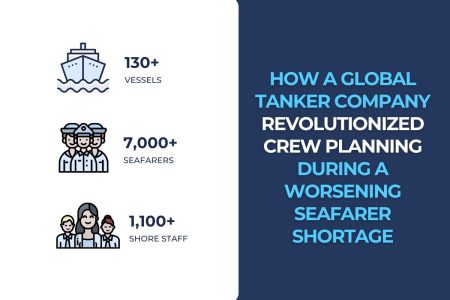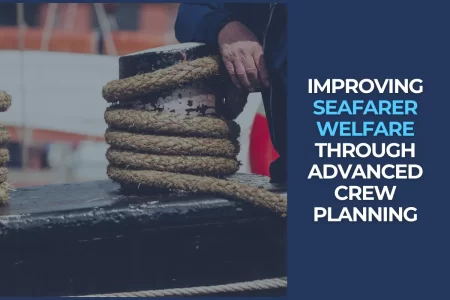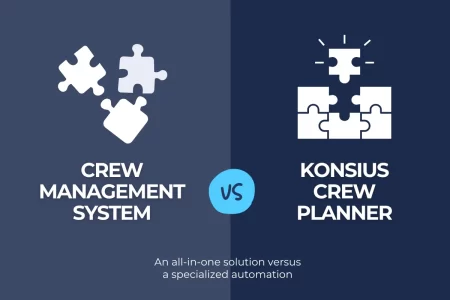The tanker industry stands at the heart of global commerce, ensuring the steady flow of oil and gas across the world’s oceans. However, the complexities of crew management in this sector are profound, demanding innovative strategies to optimize performance and retain talent. This article outlines key strategies for better utilizing existing crew, navigating the challenges posed by vessel operators, the oil major matrix, retaining skilled personnel, and, most importantly, the transformative role of automation in crew planning, especially through microservices like Konsius.
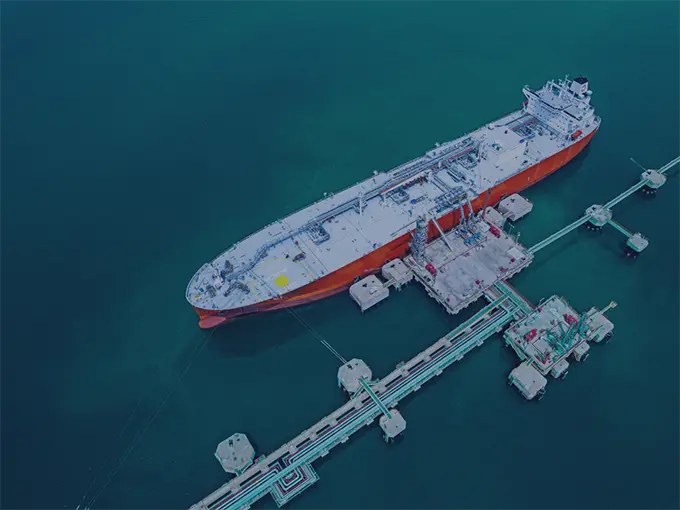
Utilizing Existing Crew for Optimal Performance
Maximizing the potential of your existing crew is essential for operational efficiency. One effective approach is to identify and deploy crew members based on their specific skills and competencies. This ensures that each member is utilized to their full potential, contributing to a more competent and versatile team.
Implementing cross-training programs can enhance flexibility, allowing crew members to handle multiple roles. Cross-training not only boosts morale but also ensures that operations can continue smoothly even when faced with unexpected absences. For instance, a crew member trained in both navigation and engine maintenance can step in when needed, reducing downtime and maintaining operational continuity.
Efficient scheduling is another critical factor. Balanced rosters help prevent burnout and maintain consistent performance levels. By creating schedules that consider both the professional and personal needs of crew members, companies can foster a more satisfied and productive workforce. Rotational schedules that provide adequate rest periods and time off are essential for maintaining the physical and mental health of the crew, which in turn enhances overall productivity and job satisfaction.
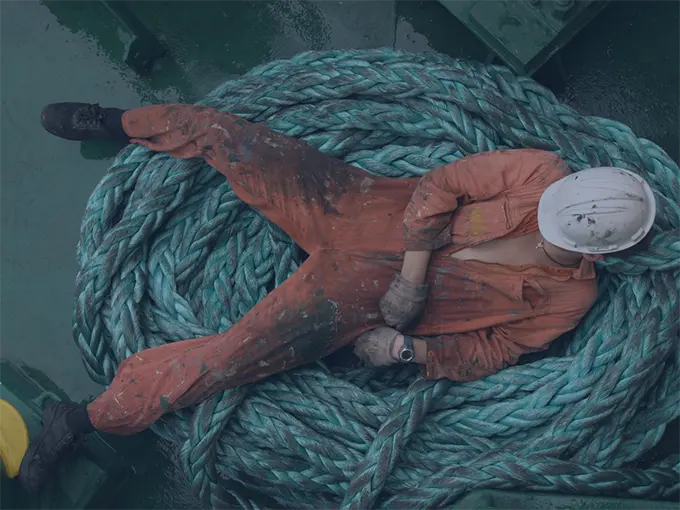
The Oil Major Matrix Challenge
The oil major matrix is a major challenge for tanker companies, often complicating the recruitment process. This matrix, a set of stringent requirements imposed by major oil companies, can limit the pool of eligible recruits, making it difficult to find qualified personnel. These requirements encompass a wide range of criteria, including safety records, crew qualifications, and crew experience.
Understanding and meeting these requirements is crucial. Strategies to overcome these challenges include investing in continuous training and certification programs that align with the matrix standards. Regular training sessions on safety protocols, emergency response, and operational best practices ensure that the crew remains compliant with the latest regulations. Additionally, maintaining thorough and up-to-date records of all training and certifications helps in presenting a strong case during vetting processes.
You need to pair the right crew members to ensure you consistently meet experience requirements. It’s also important to develop your pool with more experience. For example, whenever possible, partner a senior master with a junior chief officer. This helps build the experience of those with less, while still meeting requirements. In the long term, this will create a more flexible crew pool and provide more opportunities for seafarers to advance in their careers faster if they wish.
Building strong relationships with oil majors through regular communication and transparency can also help in navigating the matrix. By understanding their specific requirements and demonstrating a commitment to meeting them, tanker operators can improve their chances of passing inspections and securing contracts.
Retention Strategies in the Tanker Industry
Retaining skilled crew members is as important as recruiting them. Enhancing crew welfare by addressing both their mental and physical well-being is vital. Providing access to mental health resources, ensuring proper rest periods, and offering recreational facilities can make a significant difference. For example, access to mental health professionals, counseling services, and stress management programs can help crew members cope with the unique challenges of life at sea.
Career development opportunities are another powerful retention tool. By offering clear career paths and growth opportunities, companies can keep crew members motivated and loyal. Structured training programs, mentorship opportunities, and sponsorship for advanced certifications not only improve the skills of the crew but also demonstrate a commitment to their professional growth.
Competitive compensation packages, including bonuses and benefits, also play a crucial role in attracting and retaining top talent. Health insurance, retirement plans, and performance-based incentives can make positions in the tanker industry more attractive. Additionally, recognizing and rewarding outstanding performance through awards and acknowledgments can boost morale and loyalty.
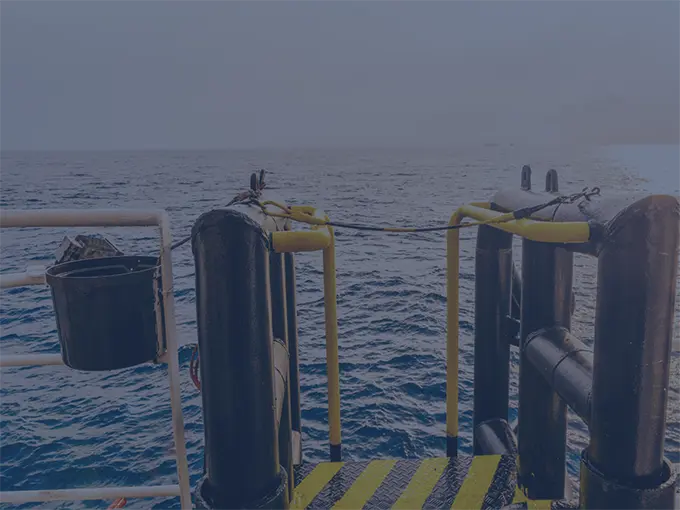
The Role of Automation in Crew Planning
Automation in crew planning can significantly improve the tanker industry. By integrating advanced scheduling software, companies can streamline the planning process, reduce administrative burdens, and enhance accuracy. Konsius Crew Planner, a microservice designed for seamless integration with existing ERP systems, utilizes an algorithm that integrates with current crew management software to fill gaps and create cohesive plans for all seafarers and vessels.
This algorithm takes into account factors such as crew availability, skill sets, and regulatory requirements, including non-negotiable criteria like regulatory compliance, crew qualifications, and oil major requirements. These considerations ensure the safety and legality of maritime operations, reducing the likelihood of human error and meeting all regulatory and contractual obligations. By systematically addressing these essential criteria, the automated planning process enhances both safety and operational efficiency, crucial for the demanding and regulated environment of the tanker industry.
Automated crew planning allows for better resource allocation, ensuring that these critical roles are filled with qualified personnel at all times. It also provides comprehensive, real-time visibility into crew schedules, essential for managing the complex logistics of tanker operations. This not only enhances operational efficiency but also improves compliance with stringent maritime regulations and reduces the administrative burden on staff. Ultimately, this leads to a more streamlined, safe, and effective crew management process, essential for the demanding nature of the tanker industry.
Optimizing Crew Utilization
In the fast-paced tanker industry, managing crew effectively is crucial. Utilizing the skills of our current crew, addressing the demands of the oil major matrix, retaining talented personnel, and adopting automation are key steps tanker operators can take to improve their operations and ensure long-term success.
Regularly reviewing and enhancing crew management practices is essential. This involves conducting periodic evaluations of crew performance, identifying areas for improvement, and implementing necessary changes. Feedback from the crew should also be sought and incorporated into management strategies to ensure that their concerns and suggestions are addressed.
Effective crew management is not just about using the latest technology but also about making informed decisions that focus on efficiency and the welfare of the crew. By prioritizing the well-being and professional development of the crew, companies can foster a loyal and motivated workforce capable of meeting the challenges of the tanker industry.
Conclusion
Maximizing crew utilization in the tanker industry involves a multifaceted approach that includes efficient use of existing personnel, overcoming the challenges of the oil major matrix, implementing effective retention strategies, and leveraging automation. By focusing on these areas, and by adopting the use of microservices like the Konsius Crew Planner, tanker operators can enhance operational efficiency, ensure compliance with stringent requirements, and create a positive working environment for their crew. The ongoing commitment to crew welfare and development is key to achieving long-term success in this vital sector of global commerce.
